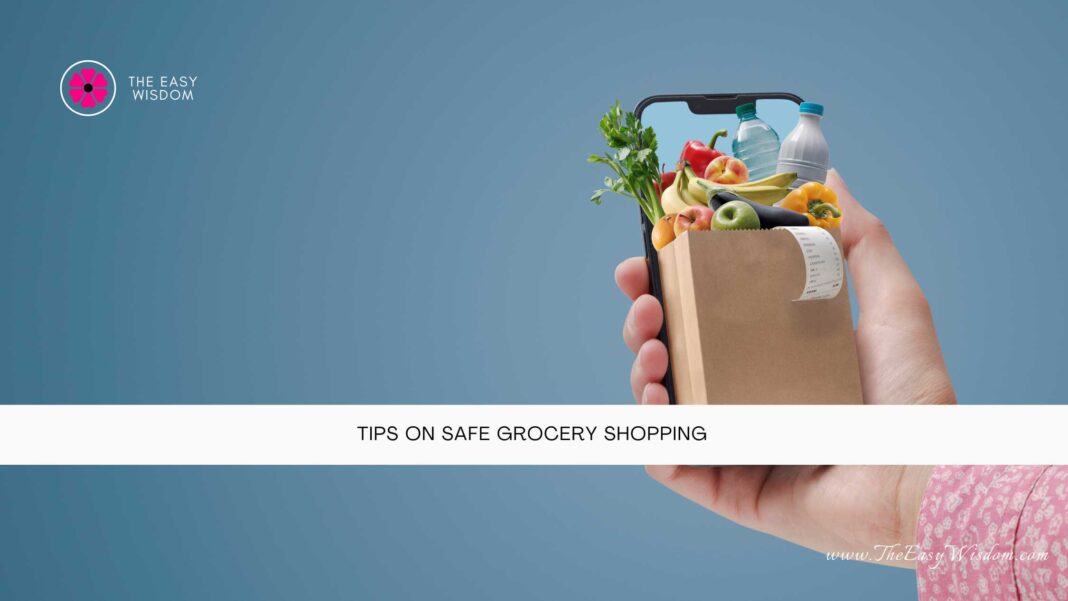As the countries around the world are reopening to save their economies from the Zener Breakdown like effects, it is quite natural for people to venture out as they have some household errands to run. And it is true in the light of loneliness and boredom people are facing staying at home. Grocery shopping is the number one reason for people to venture out and escape the monotony of staying at home 24/7. So if you are someone going out for grocery shopping to replenish the inventory or are doing it to escape boredom under the garb of grocery shopping, you need to stay safe, anyways! Many of us have questions about how to shop safely and go for a safe grocery shopping experience to ensure protection from grocery store staffers, other shoppers and the possible contamination from various touchpoints within and outside the store. Let’s figure it out!
Tips for safe grocery shopping while stepping out
Here are a few tips for safe grocery shopping that you need to keep in mind when you shop in the store or order groceries online. These tips on grocery shopping will certainly keep you safe and the virus at bay.
Before stepping out for grocery shopping
- Prepare a shopping list in advance. It will help you save time and energy and limit your risk of contracting the disease due to exposure. Buying one to two weeks worth of groceries and items is a good idea to ensure availability for everyone. Do not overstock.
- Minimize the number of trips to the grocery store. Stepping out for buying a piece of chocolate just because you are craving is not counted as essential. Every trip to the grocery store is exposing you to the virus.
- Designate one person to grocery shop. Avoid high-risk members of your house going out. Healthier members of the family should be designated to go out. People with respiratory and other medical conditions should not go out. Avoid going out if you are unwell and have COVID-19 (like) symptoms.
- Designate a clean and disinfected area in your home to place your items on return.
- Plan your grocery shopping at non-peak hours to minimize social contact with other people.
When at the store
- Wear a face mask at all times while you are out of your home.
- Carry portable hand sanitisers or disinfectant wipes with you. Use them to wipe down the handles of shopping carts and/or baskets. Wearing disposable hand gloves is a good idea.
- Take your own carry bags to stores. Sanitize and clean them for the next use.
- Practice social distancing norms while shopping as the real danger is another person’s sneeze or a cough that releases infected droplets. Avoid touching your face, eyes, mouth & nose.
- Avoid using your mobile phones when out shopping. Touching a contaminated surface and then touching your phone will put you at the risk.
- Pick only items you need to buy. Avoid picking items from shelves and then placing them back.
- Shop quickly and be efficient. Do not loiter around aimlessly in the supermarket aisle. Pick what you need and head out.
- Use only touchless payment methods where ever possible. After using your card or cash, make sure to sanitize your card and wallet and your hands right after the use.
On returning home
- Wash your hands thoroughly with soap and water for at least 20 seconds. Handwash again after touching, handling or storing your purchased items.
- Change your clothes and remove your shoes outside as soon as you enter the home. Bathing after returning home further reduces the risk.
- Discard all the packaging (whenever possible) and place the products in their respective containers. The products that are not needed for immediate consumption or use shall be stored at the designated space after disinfecting the packets with wipes or sanitisers. If you are not disinfecting the items which are not needed immediately, store them in the designated place for at least 24-48 hours before touching them.
- Clean all the vegetables, meat and poultry properly with water while scrubbing them with your hands and safely storing them in already cleaned food containers before going in the fridge. Before eating fruits and vegetables make sure to wash them under running tap water.
- Clean the kitchen counter, shelves, refrigerator handles, and door handles regularly, with commercially available disinfectants.
When ordering at home
- Avail contactless delivery while ordering groceries at home and ask the delivery person to keep the packed items outside the door or near the security at the entrance.
- After picking up the parcel, wash your hands and transfer the food to a separate container. Dispose of the empty parcel, clean the area where the parcels were kept and wash hands again with warm water and soap before consuming the products or food.
- Follow the steps for cleaning and disinfecting of groceries and items as mentioned above.
- Avoid ordering uncooked foods like salads, cold cuts & sandwiches. The research suggests that the virus would likely be killed by cooking, however, this may not be the case with uncooked food items.
Always remember food is a source of comfort and nourishment for you and your family. We hope this advice will help you buy your groceries in a safe & healthy manner while taking care of people around us.
Also Read: Shopping for Clothes in Mind? How to Shop Safely as the Malls Reopen!
PS: Still looking for more tips on safe grocery shopping. Please refer to grocery shopping guidelines by the Centre for Disease Control & Prevention.




